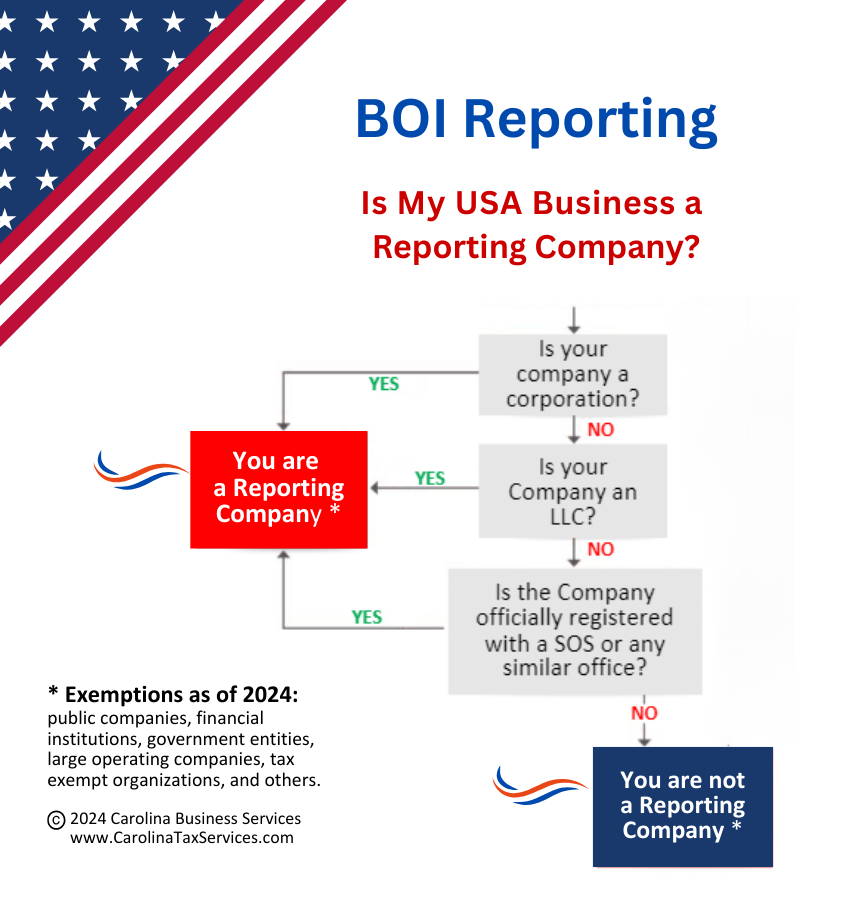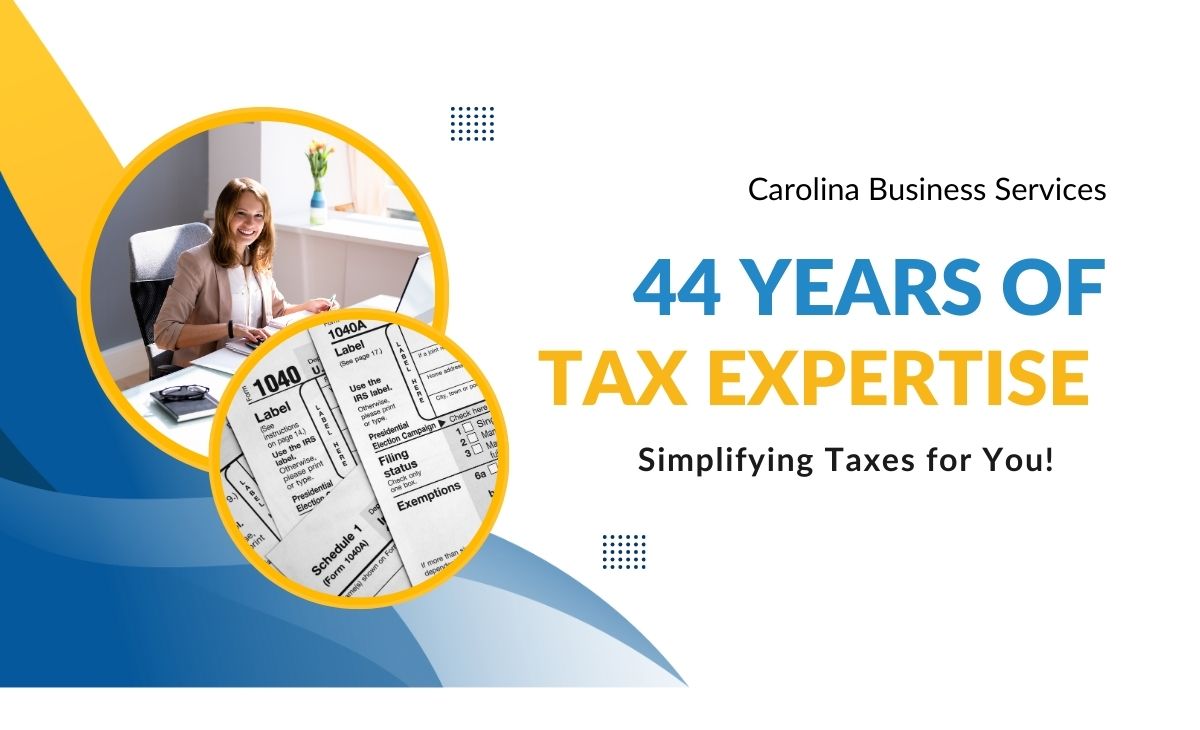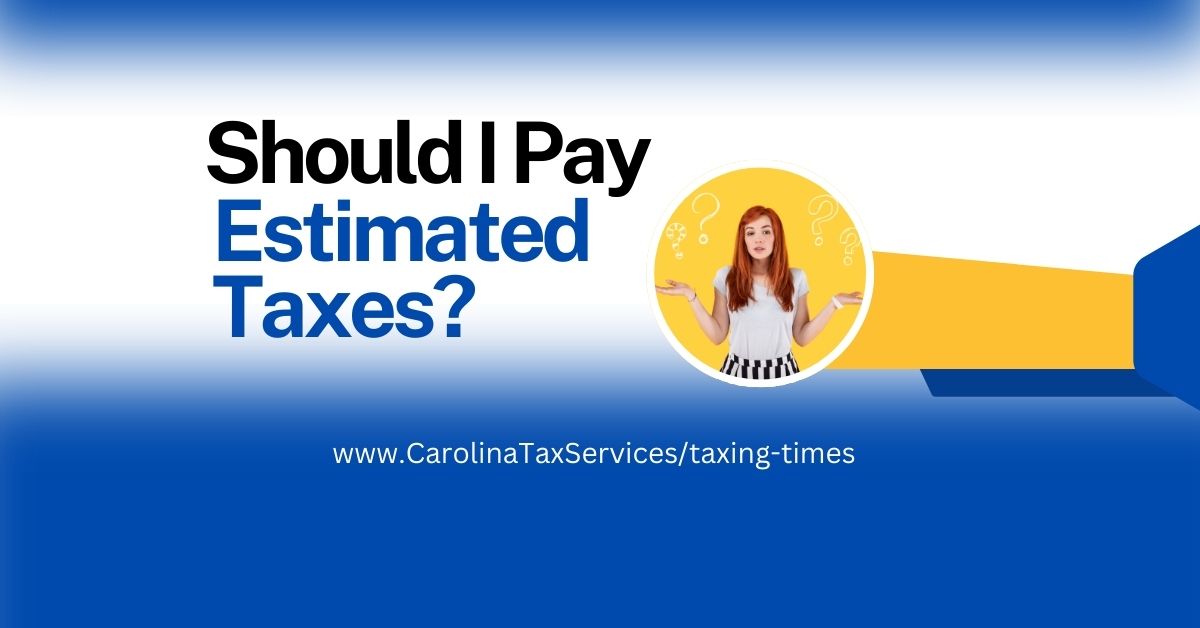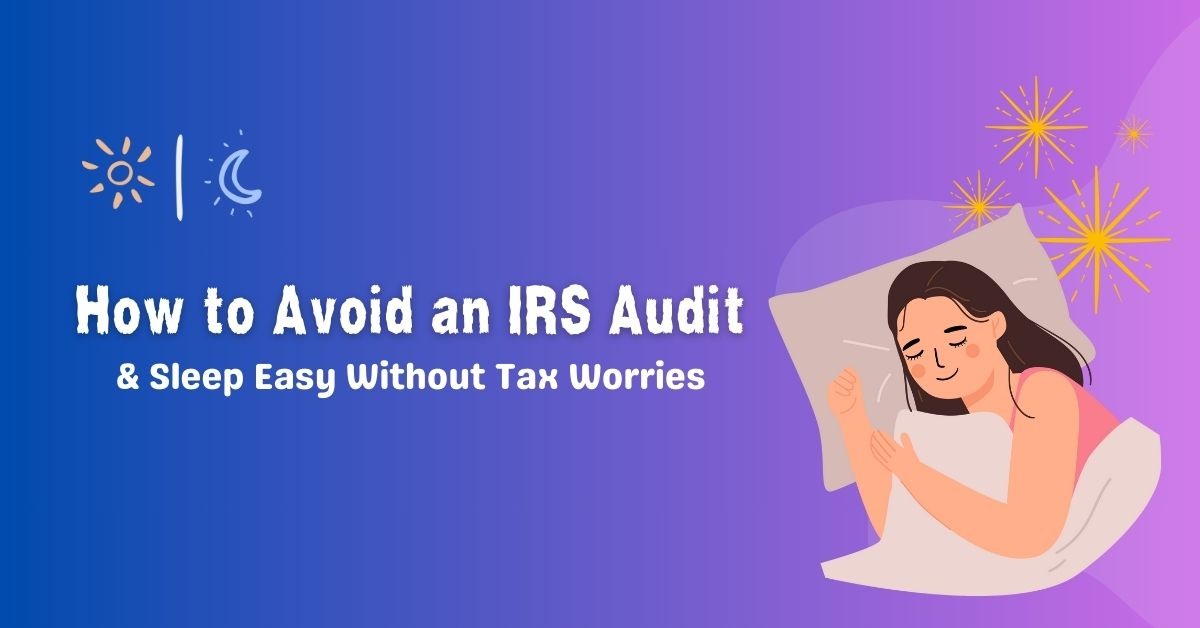NEW CTA LAW: Court Pauses BOI Reporting
UPDATE - ALERT
Small Business Ownership Reporting Paused by Court Ruling
Nationwide Injunction on CTA
BOI Reporting
Small business owners are NOT required
to file the Beneficial Ownership Information (BOI) report
by the original deadline of December 31, 2024,
due to a federal court ruling.
On December 3, 2024, a federal court issued a nationwide preliminary injunction in Texas Top Cop Shop, Inc. v. Garland, temporarily halting the enforcement of the Corporate Transparency Act's (CTA) Beneficial Ownership Information (BOI) reporting requirements. This important development impacts small business owners in several ways:
Key Points:
- Immediate Impact:
- All deadlines for reporting BOI to the Financial Crimes Enforcement Network (FinCEN) are currently suspended.
- Businesses are not required to file BOI while the injunction is in effect, and no penalties will apply for non-compliance during this time.
- Purpose of the CTA:
- The CTA aims to combat financial crimes such as money laundering and tax fraud by requiring most small businesses to report their beneficial owners—those with significant control or ownership.
- Current Legal Status:
- The Department of Justice has appealed the injunction, and the Treasury Department continues to defend the CTA’s constitutionality.
- FinCEN has confirmed it will comply with the court order but advises businesses to stay informed, as this situation may change.
- Recommendations for Small Business Owners:
- Stay Prepared: Continue collecting ownership data to ensure readiness if reporting requirements are reinstated.
- Stay Informed: Regularly check our website for updates on this and other small business topics to remain compliant with any future changes.
Why Understanding
the CTA Still Matters
While this injunction temporarily pauses reporting requirements, understanding the broader purpose and implications of the CTA remains essential. Read on to explore how this law may affect your business and steps you can take to stay ahead.
Note: The original article, published on November 26, 2024, provides an in-depth explanation of BOI reporting, including who must file, what information is required, and how the initial December 31 deadline was established.
Read on to stay informed and prepared in case the preliminary injunction is lifted and reporting requirements are reinstated.
New CTA Law in Effect as of 2024
Who Must Report?
& How to Comply
35 Million Small Businesses Affected
Existing Businesses Must Report by
December 31, 2024

Is Your Small Business Prepared
for New Federal Reporting Requirements?
With the Corporate Transparency Act (CTA) now in effect, millions of small businesses must deal with the complexities of Beneficial Ownership Information (BOI) reporting.
This guide breaks down everything you need to know to stay compliant and avoid costly penalties.

Why the Corporate Transparency Act
Matters to Your Small Business
The Corporate Transparency Act (CTA) requires millions of small businesses to report their ownership information to the federal government. This law was passed by a bipartisan Congress and signed by the President in 2021 to take effect January 1, 2024. Its purpose is to fight financial crimes by increasing transparency around business ownership.
But what does that mean for you as a small business owner?
Simply put, you need to know who needs to report, what information is required, and how to submit it correctly.
This article explains who qualifies as a Reporting Company and Beneficial Owner, walks you through the reporting process, and ensures you have the tools to comply with the CTA regulations. By following these steps, your business will be prepared to comply with this new legislation.
Is Your Business Affected?
Who Needs to File a BOI Report
The CTA’s Reach: Who Must Report?
If you operate a small business, there’s a high chance that the CTA applies to you. The CTA law covers most business structures, including corporations, LLCs, and similar entities registered to operate in the U.S. Typically, registering your entity with the Secretary of State qualifies you as a Reporting Company.
To comply, you must file an initial Beneficial Ownership Information (BOI) Report with the Financial Crimes Enforcement Network (FinCEN) by December 31, 2024. Learn more about the CTA requirements directly from the U.S. Department of Treasury.
BOI Reporting:
Understanding Beneficial Ownership
Its More Than Ownership Shares
When it comes to BOI reporting, the focus isn’t just on who owns shares in your company. Instead, the CTA is concerned with who ultimately controls the business. Whether someone holds a direct or indirect stake or has significant influence over decisions, they’re considered a Beneficial Owner.
To help simplify this complex subject, let's take the fictitious Astor LLC as an example to understand who qualifies as a Beneficial Owner according to the Corporate Transparency Act (CTA).
Astor LLC:
Brenda and Charles individually hold a direct ownership stake that exceeds 25% in Astor LLC. They are considered Direct Owners and must be included in the BOI Report.
David is an Indirect Owner because his business, Cole Company Inc., owns a stake in Astor LLC that exceeds 25%. Astor must include David in their BOI Report.
Robert, Astor’s manager, significantly influences major business decisions behind the scenes. According to the CTA Regulations, he is also a Beneficial Owner because he has Substantial Control over the business. Even though Robert has no ownership, Astor must include him in their BOI Report.
The Takeaway
When filing your BOI Report, you need to consider not just ownership percentages but also who controls the company's direction. Accurately capturing this information is crucial to complying with FinCEN’s requirements.
Your BOI Report Checklist:
What You Need to File
Filing your BOI Report might seem complex, but we'll break it down into the critical pieces of information. Beneficial Owners are the core of the Report, identifying the individuals with control over your business, as defined by the Corporate Transparency Act (CTA). Gathering this information beforehand can streamline the BOI Report filing process.
Beneficial Owner Details
As discussed in our example for Astor LLC, there are two main ways someone can qualify as a Beneficial Owner:
- Ownership Stake: They directly or indirectly own 25% or more of the ownership interests in your company.
- Substantial Control: They influence your business decisions significantly, even if they don't own a share of the company.
For each Beneficial Owner, you'll need to include:
- Full legal name
- Residential address
- Date of birth
- A unique identifying number like a driver's license or passport number (for U.S. citizens or residents)
Company Information Details
- The legal company name, address, and registered agent information.
- Your company's Taxpayer Identification Number (TIN) is also needed.
Filing Type Clarifies Report's Purpose
- Initial BOI Report (submitted one time)
- Submit a correction
- Updating previously reported information
Company Applicants
For New Businesses Formed After January 1, 2024:
This section identifies the individual(s) who officially formed your business with the Secretary of State or other authority. They could be:
- You (if you formed the business yourself)
- A lawyer or other professional who helped you file the required documents.
- Another individual who took the lead on filing the formation documents.
Meeting the FinCEN Deadlines:
When to File Your BOI Report
The deadline for submitting your BOI Report depends on when you formed your business:
- Businesses Established Before January 1, 2024: You must submit your initial BOI Report to FinCEN by December 31, 2024.
- Businesses Established After January 1, 2024: New businesses must file their initial BOI Report within 90 days of receiving state approval for their business registration.
Keeping Information Accurate: Amended Reports
- If there’s a change in your business’s ownership structure or you discover an error in your initial report, you must file an amended report with FinCEN within 30 days of the change. Staying on top of these updates is essential to remain compliant.
How to File:
A Hassle-Free Process
Thankfully, filing your BOI Report is straightforward. And there's no filing fee involved, making it a budget-friendly step towards compliance.
Two filing options to suit your needs:
- Downloadable PDF: Would you prefer a paper-like experience? You can download a PDF form, fill it out at your own pace, and upload it to the portal.
- Online Form: For a quicker approach, utilize the online form directly within the FinCEN system.
No matter which method you choose, remember to gather the necessary information we outlined earlier (beneficial owner details, company information, filing type, and company applicants for new businesses).
Following these guidelines help ensure a smooth and efficient filing process.
Avoiding Penalties:
The Importance of Timely BOI Reporting
While the BOI reporting process is straightforward, it's essential to take it seriously. The Corporate Transparency Act (CTA) has sharp teeth for non-compliance.
Here's what you need to know:
- Knowingly filing false or fraudulent information or deliberately failing to report or update ownership information is a federal offense, which can result in severe consequences.
- Penalties can be steep. You could face a civil penalty of up to $500 each day you're out of compliance. That can add up quickly!
- In addition to civil penalties, criminal charges are also possible. In the worst-case scenario, you could face imprisonment for up to two years and/or fines reaching $10,000.
Filing your BOI Report by the deadline helps you avoid these penalties and ensures your business operates compliantly. Remember, accurate and timely reporting is vital.
Key Takeaways
Navigating BOI Reporting Requirements
The Corporate Transparency Act (CTA) has changed the landscape of small business ownership. To help simply the process, here's a quick recap we have discussed:
The essential information you need to know as a small business owner:
- Who Needs to File: Most businesses registered in the U.S., including corporations, LLCs, and similar entities, must submit a Beneficial Ownership Information (BOI) Report to FinCEN.
- What Gets Reported: The BOI Report details the individuals with control over your business, including those who directly or indirectly own 25% or more of the company or exercise significant influence over major decisions.
- When to File: The deadline depends on when you formed your business. Existing businesses have until December 31, 2024, to file their initial Report. New companies have 90 days from receiving registration approval. Remember to file amended reports within 30 days of any ownership changes.
- How to File: The BOI Report is conveniently submitted electronically through FinCEN's secure online portal. You can download a PDF form or utilize the online form directly.
- Why Comply? Timely and accurate BOI reporting ensures your business operates compliantly and avoids potential civil or criminal penalties for non-compliance.
These key points help your business comply with CTA regulations. If you have further questions, consult a professional advisor or explore the FinCEN BOI resources linked throughout this guide.
Is BOI Reporting Constitutional?
Update: Legal Battle on BOI Reporting
Alert: Notice Regarding National Small Business United v. Yellen,
No. 5:22-cv-01448 (N.D. Ala.) For Official Updates:
FinCen.gov website
Updated: March 11, 2024
On March 1, 2024, a federal court ruled that the Corporate Transparency Act (CTA) exceeds Congress's constitutional authority. The court prohibited the Department of the Treasury and FinCEN from enforcing the CTA against the plaintiffs in this case.
However, the Department of Justice has appealed this decision as of March 11, 2024.
While the appeal is ongoing, FinCEN will continue to enforce the CTA for everyone else as required by law. Only the following plaintiffs are currently exempt from reporting beneficial ownership information:
- Isaac Winkles (An Alabama Real Estate Professional)
- Entities where Isaac Winkles is a beneficial owner or applicant
- The National Small Business Association (NSBA)
- Members of the NSBA as of March 1, 2024
All other reporting companies must comply with CTA requirements. This notice will be updated as the case progresses.
Additional Information Concerning the Controversy and Lawsuit:
- Common Misconceptions about Alabama’s lawsuit (Wolters Kluwer)
- Update from COGENCY GLOBAL
- Journal of Accountancy - CPA societies Concerns
Additional Resources
Sifting through the complexities of the Corporate Transparency Act (CTA) and Beneficial Ownership Information (BOI) reporting can be challenging. But you don’t have to do it alone. Here are some additional resources to help you stay compliant and keep your business running smoothly:
- FinCEN BOI Resource Center: Financial Crimes Enforcement Network (FinCEN), official guidelines and forms.
- Get answers for frequently asked questions: FAQ directly from the FinCEN
- Carolina Business Services: Local help from Rutherford County, North Carolina and beyond:
Consult with a Legal Expert: If you’re unsure about specific aspects of the CTA or BOI reporting requirements, consider consulting with an attorney specializing in corporate law.
Still Have Questions?
Here are answers to some of the most common questions about the Corporate Transparency Act (CTA) and its requirements for small businesses.
Who exactly needs to file a BOI report under the CTA?
The BOI reporting requirements apply to most small businesses, including corporations, LLCs, and other similar entities registered in the U.S.
However, some businesses, such as publicly traded companies and certain large entities, are exempt. If your business structure is registered with the state, it’s likely that you’ll need to file a report.
What information do I need to gather for the BOI report?
1. Details about each Beneficial Owner, including their full legal name, residential address, date of birth, and a unique identifying number (such as a driver’s license or passport number).
2. Basic information about your business, including the legal name, address, and Taxpayer Identification Number (TIN).
What is the deadline for submitting the BOI report?
For businesses established before January 1, 2024, the deadline to submit your initial BOI report is December 31, 2024.
If your business was established after January 1, 2024, you must file your BOI report within 90 days of receiving state approval for your registration.
What happens if I don’t comply with the CTA’s reporting requirements?
Non-compliance with the CTA can lead to significant penalties, including civil fines of up to $500 per day for each day the violation continues.
In more severe cases, criminal penalties, including fines up to $10,000 and imprisonment for up to two years, may apply.
How can I correct or update a BOI report after it has been filed?
If there’s a change in your business’s ownership structure or you discover an error in your initial report, you must file an amended report with FinCEN within 30 days of the change. Keeping your information accurate is essential to remain compliant.
Disclaimer: This article is for informational purposes only and does not constitute legal, tax, or financial advice. Please consult a qualified professional to address your specific needs and ensure compliance with applicable laws.
Taxing Times

Get In Touch

About Carolina Business Services
For over 40 years, our firm has been a trusted provider of income tax preparation services to individuals and small businesses across Spindale, Rutherfordton, and Forest City, NC. Our vast expertise and knowledge allow us to handle tax preparations - from simple to complex - across all 50 states and for US citizens living abroad.
Our personalized and efficient tax preparation services are designed with you in mind, and our friendly and fast approach means you can count on us to work for you.
So why wait?
Contact us today!
Centrally Located
Rutherford County, North Carolina
Copyright © 2023 Carolina Business Services - All Rights Reserved.













